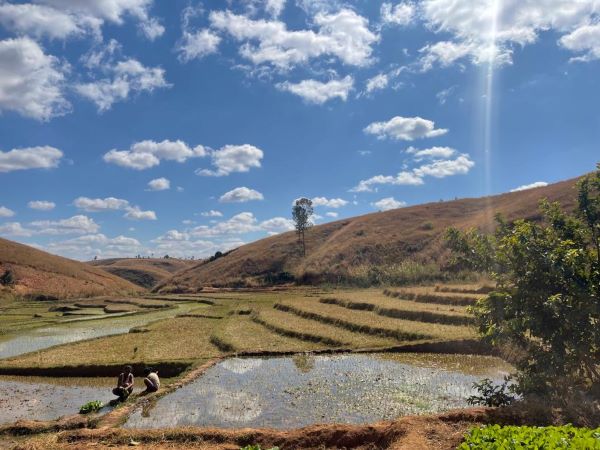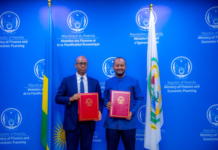By Marcelle Ayo, IFC Country Manager for Madagascar
Because of its geographical location and climatic conditions, Madagascar is especially vulnerable to extreme weather events and natural disasters, including droughts, cyclones, floods, and wildfires.
These dangers, many of them climate change related, are posing grave risks to the country’s important agriculture sector, which is a major employer and contributes almost a quarter of the island nation’s GDP.
Just this year, for example, cyclones Batsirai and Emnati destroyed more than 60,000 hectares of predominantly smallholder rice fields, reducing local rice production by almost 40 percent.
While the world works to limit greenhouse gas emissions and reign in global warming in the medium and long terms, one way to help Malagasy farmers today is with targeted insurance products to protect their livelihoods.
A new study from IFC estimates that 80 percent of small-scale Malagasy farmers growing cloves, maize, rice, vanilla, and other crops are interested in specialized insurance products, such as agricultural and catastrophic risk insurance.
In Zambia and Kenya, for example, index insurance (which pays out benefits for losses through a predetermined index, such as rainfall levels) has proven to be effective in providing coverage to smallholder farmers. IFC played a key role in developing the index insurance market in both countries.
However, Madagascar’s climate insurance sector is currently underdeveloped. Climate insurance pilots have been conducted in the country’s south, focusing mainly on maize, beans, and peanut value chains, but they have yet to reach farmers in other parts of the country—or those growing other crops.
The IFC study, the Madagascar Agri-Insurance Diagnostic, outlines several steps the Malagasy government could take to increase the availability of—and market for—insurance products, including policy changes and awareness raising. The private sector also has an important role to play here developing innovative, attractive insurance products and distributing them.
The foundation for the insurance market to grow in Madagascar is there. The government passed an insurance law in 2020 that aims to strengthen the sector and boost financial inclusion by broadening the types of insurance permitted, including microinsurance, digital insurance, and index insurance,
The government could also promote insurance by embedding it in other agriculture development programs, raising awareness about its benefits and by subsidizing low-income farmers. The IFC study found that it is essential to combine climate insurance with other products, such as access to credit, to make it more attractive to smallholder farmers.
Based on the study’s findings, IFC will design a new climate insurance pilot for Madagascar, in collaboration with insurance companies and key public and private stakeholders, in regions not covered by previous pilots and bundled with other products.
Of course, insurance is not the only solution to climate and weather-related challenges. A combination of practices and tools will be vital to build resilience and promote adaptation in Madagascar, including crop rotation, diversification, and the use of drought-tolerant seed varieties and more efficient water management methods.
The right steps today to develop innovative, inclusive insurance products – along with other tools – will help build resilience and confidence in the sector, boost agricultural productivity, safeguard farmers’ livelihoods, and drive sustainable economic growth.








